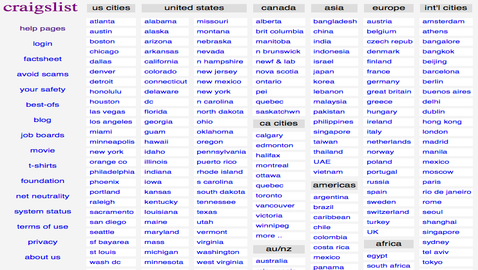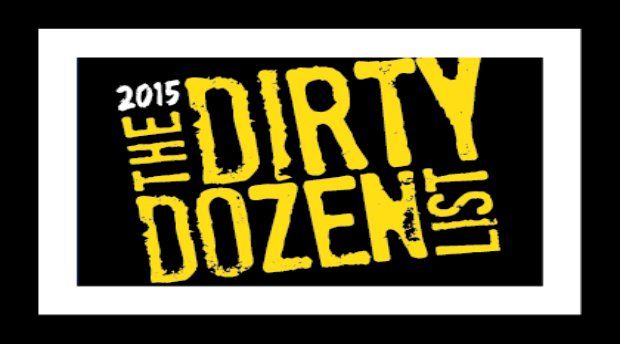Internet Ads in Antitrust Controversy
Post Views 13Craigslist.org is in antitrust controversy according to a lawsuit with 3Taps, Inc. on monopolization and unfair competition claims. Craigslist.org is a popular website for people to post jobs and goods for sale. 3Taps, Inc. is a website that indexes data. The lawsuit began as a copyright infringement lawsuit and is captioned Craigslist, Inc. vs. 3Taps, Inc. and Padmapper, Inc., Case Number 3:2012cv03816, Filed July 20, 2012, in California Northern District Court in San Francisco, CA.
3Taps redistributes listings on Craigslist.org to web developers. The redistributed listings increases the availability of the classified ads, but not done with the permission of Craigslist.org, and sometimes not known to the person posting the ad.
In a counterclaim, 3Taps acknowledged it redistributes Craigslist.org data but claims that it is just gathering public information from third party search engines, such as Google. When people post an ad on Craigslist.org, the ads are searchable on Google and other search engines. If a person uses key words, the ads even pop up to the first pages of search results.
3Taps claims Craigslist.org misused its dominant market position with cease-and-desist letters and copyright infringement suits. The information 3Taps indexes allegedly “is factual material not subject to copyright protection,” according to court filings.
3Taps’ counterclaim requests damages and injunctive relief, including prohibiting Craigslist.org from filing “sham lawsuits” and “engaging in copyright misuse,” according to court filings.
The case raises interesting antitrust issues on causation. The U.S. Supreme Court explained in Zenith Radio Corp. V. Hazeltine Research, Inc., 395 U.S. 100, 114 & n. 9, 89 S.Ct. 1562, 1571 & n. 9 (1969): “[Plaintiff’s] burden of proving the fact of damage under Sec. 4 of the Clayton Act is satisfied by its proof of some damage flowing from the unlawful conspiracy; inquiry beyond this minimum point goes only to the amount and not the fact of damage. It is enough that the illegality is shown to be a material cause of the injury; a plaintiff need not exhaust all possible alternative sources of injury in fulfilling his burden of proving compensable injury under Sec. 4 (emphasis in original).” Danny Kresky Enters. Corp. v. Magid, 716 F.2d 215, 1983 U.S. App. LEXIS 24262 (9th Cir. 1991).
In Danny Kresky Enters. Corp. v. Magid, 716 F.2d 215, 1983 U.S. App. LEXIS 24262 (9th Cir. 1991), the appellant alleged the appellees committed antitrust violations in connection with the promotion of concerts in the Pittsburgh, Philadelphia market. The appellate court, citing Hahn v. Atlantic Richfield Co., 625 F.2d 1095, 1099 (3rd Cir. 1980), cert. denied, 450 U.S. 981, 101 S.Ct. 1516, 67 L.Ed.2d 816 (1981) said: “The requisite causation, the link between defendant’s activity in violation of antitrust laws and plaintiff’s inability to even bid for the concerts in question, was an inferential leap the jury was permitted to make in light of the evidence before it.”
Internet Ads in Antitrust Controversy by Harrison Barnes



 Advertisers Turn to Outlets Other Than Traditional Television
Advertisers Turn to Outlets Other Than Traditional Television  What Really Happens When We Receive Personalized Ads
What Really Happens When We Receive Personalized Ads  12 Companies That Profit Off Sexual Exploitation
12 Companies That Profit Off Sexual Exploitation  “Deadzone Diners” Takes a Different Approach to Cellphone Usage
“Deadzone Diners” Takes a Different Approach to Cellphone Usage  Fast Food Companies Look to Their Consumers for Advertising
Fast Food Companies Look to Their Consumers for Advertising  Project Gravitas Prepares for Black Friday with ‘Message in a PG Box’
Project Gravitas Prepares for Black Friday with ‘Message in a PG Box’  Next Level Text Allows Anyone to Fundraise
Next Level Text Allows Anyone to Fundraise